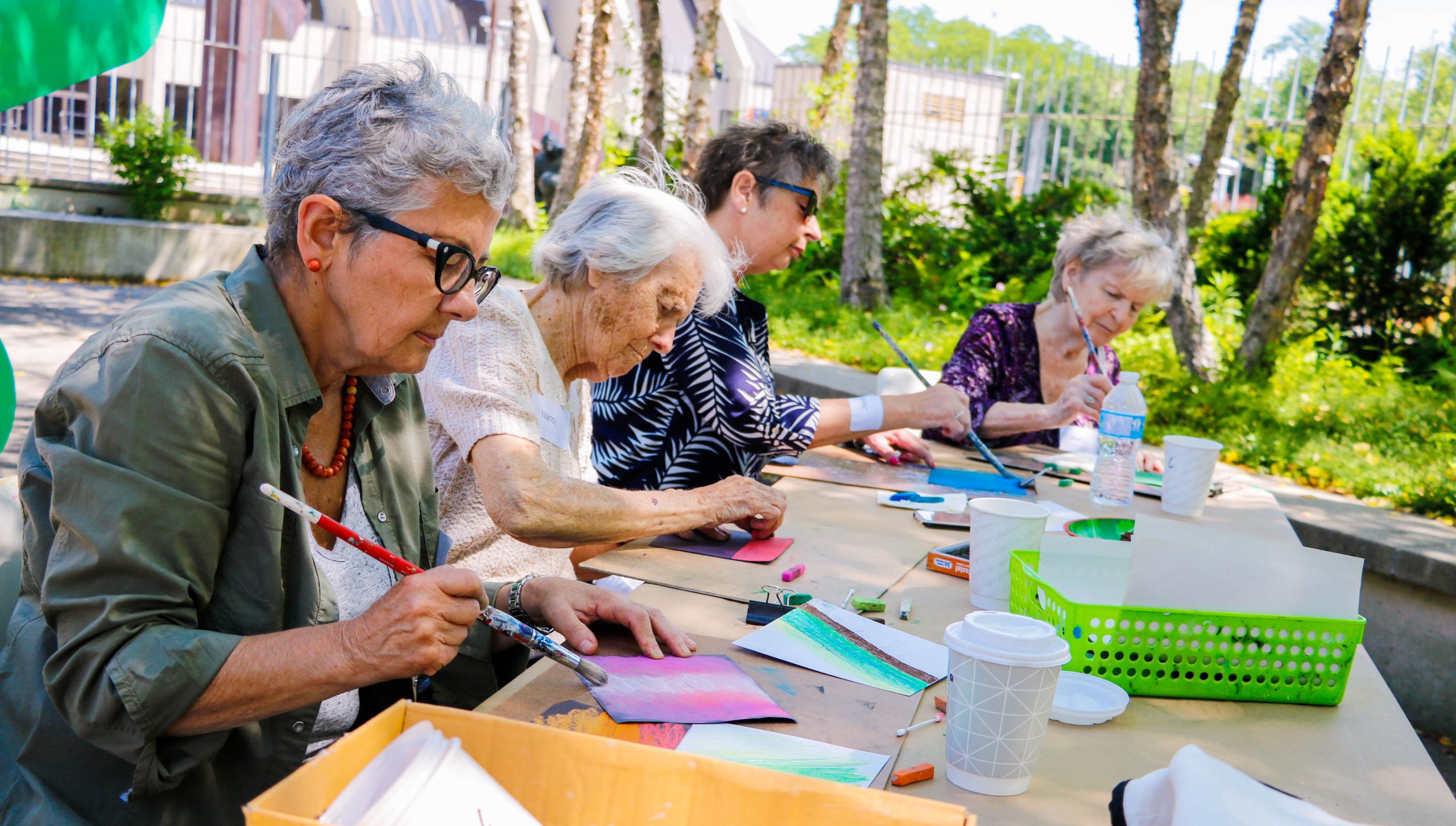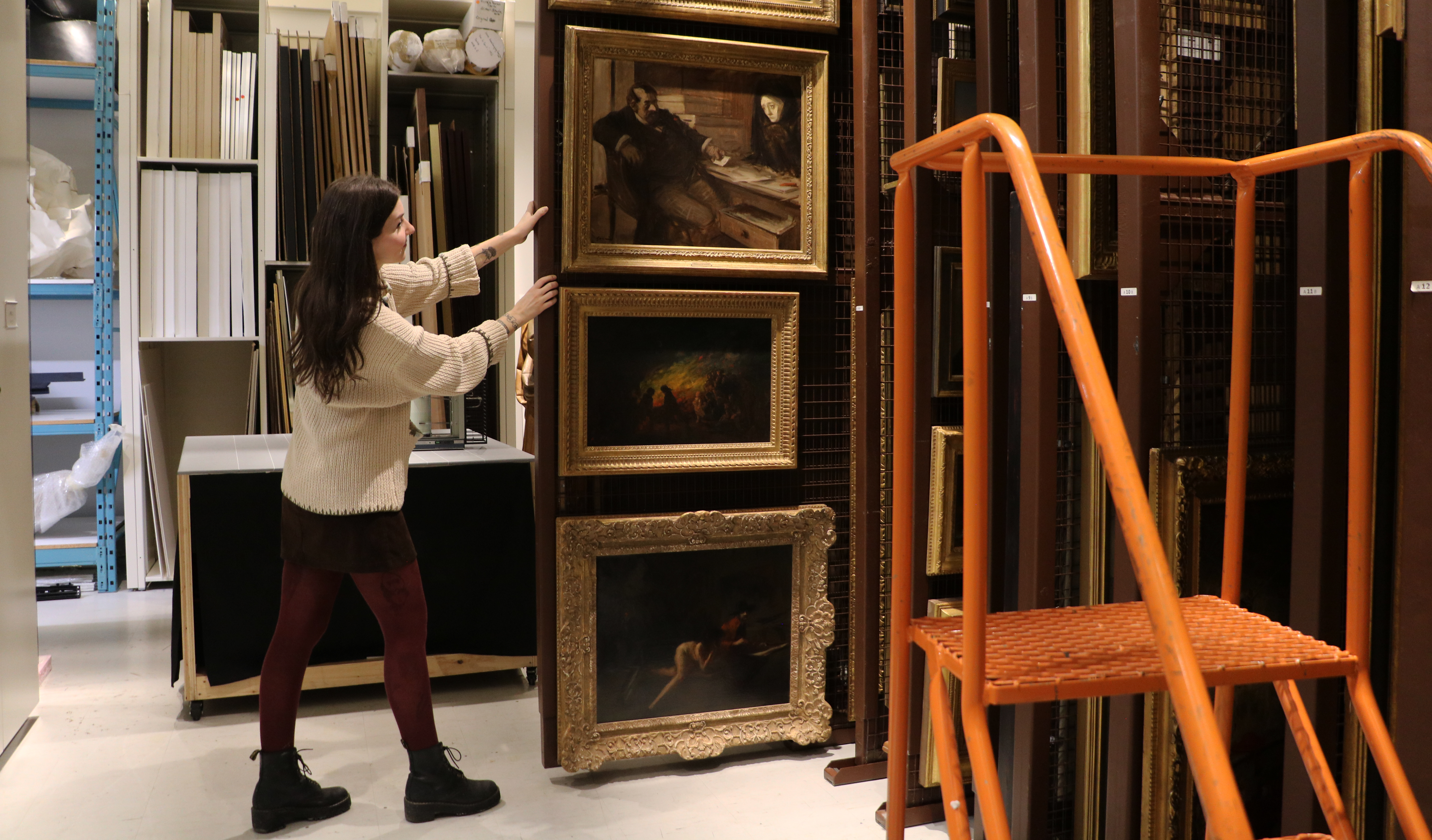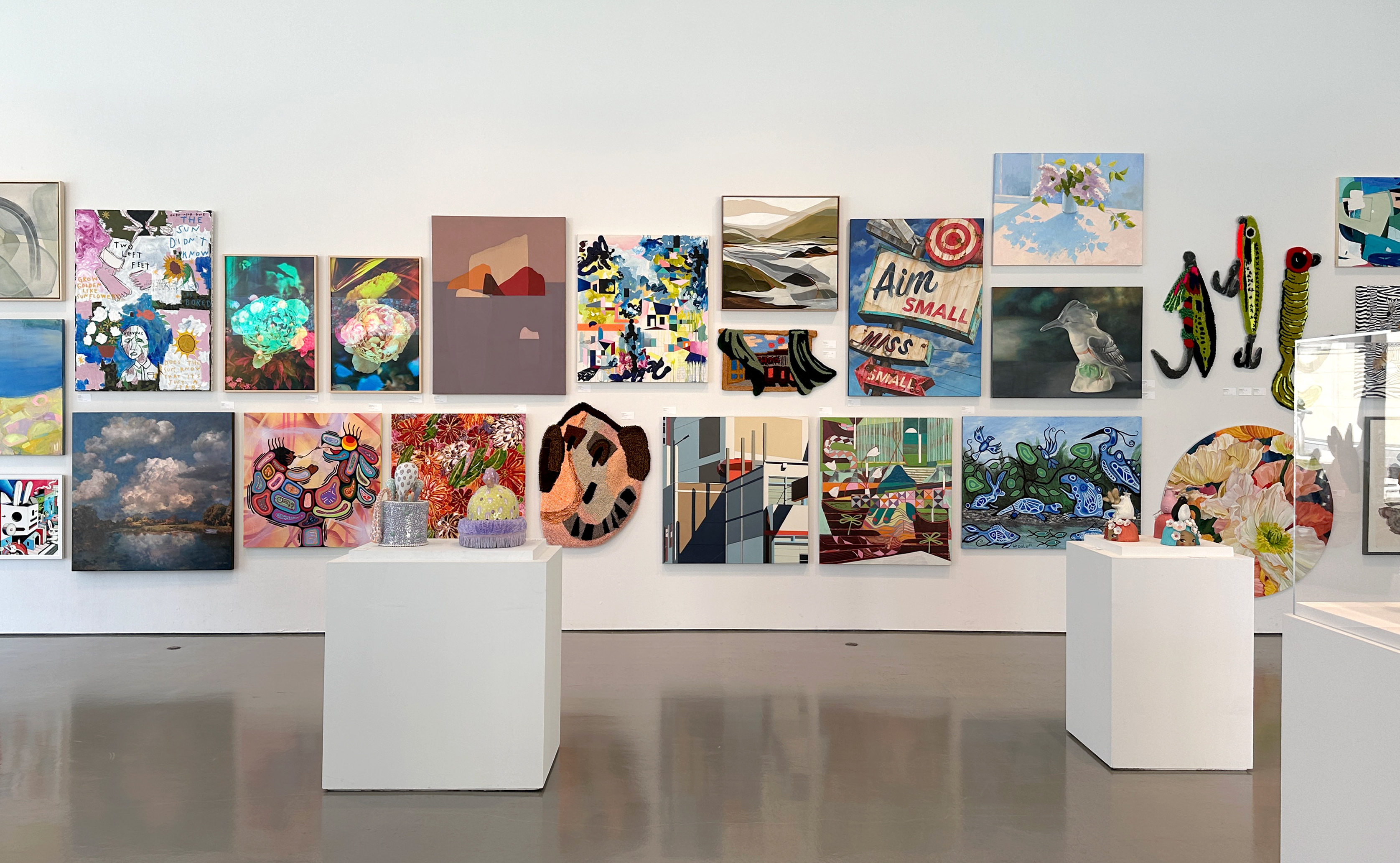Visibility vs. erasure
Empowerment vs. stigma
Strengths focus vs. barriers
January is Alzheimer’s Awareness Month in Canada. The aim of the month is to raise awareness and challenge stigma surrounding Alzheimer’s and dementia. As our communities age, we see the impact of dementia and the stigma that surrounds it becoming ever more widespread in Canada.
The Art Gallery of Hamilton has been presenting specialized programs for people living with dementia and their families for many years, and through this work, we have connected with many wonderful participants and their families. We know that awareness, inclusion and empowerment is essential to the well-being of people with dementia and their loved ones, and we have been privileged to participate in making this a pillar of our programming.
Museums and galleries offer a wealth of opportunities for personal and social connection for people of all abilities. For people living with dementia, museums offer meaningful opportunities to participate in their community, and contribute their ideas, life experiences and individuality to programs and experiences that are beneficial for themselves and others. Spending time in museums can open us to new experiences and emotions. Museums are places where rich cultural collections and stories connect us to our world, help us find meaning, and take us out of the everyday.
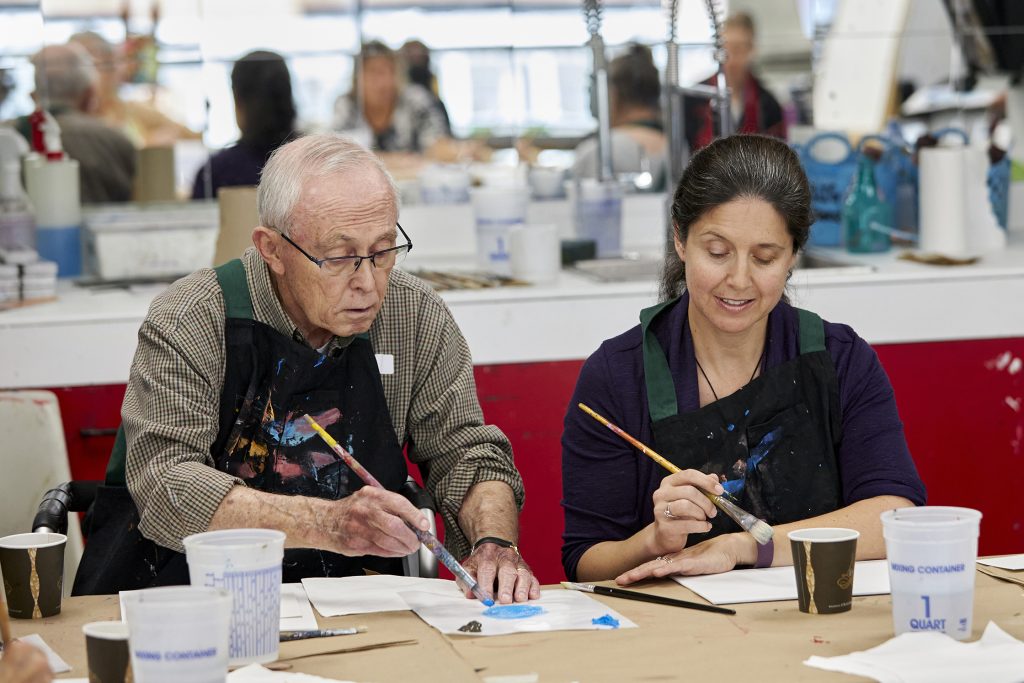
In their 2016 exploration of the impacts of museum experiences on the well-being of people with dementia, researchers Camic, Tischler and Pearman have this to say:
“[Our] research shows that participants in museum programs report higher quality of life, greater self-esteem, sense of engagement and social cohesion, and decreases in depression and apathy. Participants especially valued their visits to museums as non-medical settings that enhanced their ‘flourishing’ and as a way to demonstrate their capacity to engage in a variety of activities.”
The words are all there – self-esteem, engagement, connection, capacity. As care models shift away from solely clinical frameworks to embrace the opportunities presented in a broader social support network, quality of life improves.
Conversely, isolation caused by stigma or lack of access can be a huge barrier to living fully with dignity and respect. It profoundly affects the well-being of people who experience it, and it can change the way they feel about themselves and how others see them – leading to loneliness a loss of social connections, access to community experiences, and opportunities to participate or contribute. For example, in a recent survey by the Hamilton Council on Aging, only 20 percent of people with dementia felt they were a valuable part of the community, and 47 percent of the respondents felt there were no opportunities to engage in community activities.
While experiences in museums offer many benefits and opportunities, it is only when those experiences are centred on the strengths of the people who participate (not the changes they may have experienced) that they have a meaningful impact. When we think about our communication, the accessibility of our spaces, and the kinds of activities we offer – when we listen to the people who come to museums advocate for their interests and needs – we make space for everyone to fully participate.
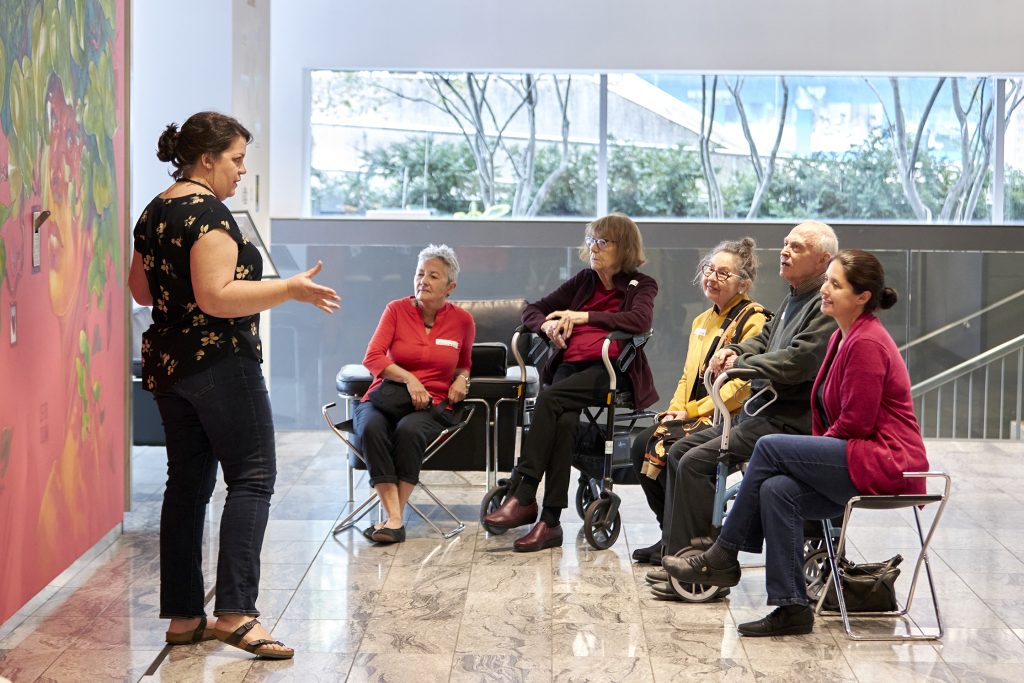
Becoming dementia-friendly means more than just building accessibility – it means connecting with the whole person, their life stories and wisdom, their creativity and joy, their individuality and strengths, and making space for them to join in the process.
As we look to the museum field, we see shifts in perspective and mandate that embrace the empowerment of our audiences – to share voice and experience, to interpret collections and exhibitions in a way that creates personal relevance and meaning, and to use the museum as a resource and inspiration for individual self-discovery. We follow the participant in our programs, and support the experience as we go.
For many years, the Art Gallery of Hamilton has been privileged to present Artful Moments, a program of art-based conversation and hands-on activities for people with cognitive changes. We have spent time with hundreds of people, exploring exhibitions and laughing, sharing stories, and making art together. As we look to Alzheimer’s Awareness Month as an opportunity for growth and empowerment, we are so thankful for each of our participants, community consultants with lived experience, and their family and friends. We learn and grow thanks to each person – and we do better work because of them.
For an overview of Artful Moments, visit: www.artgalleryofhamilton.com/learn/wellness/artful-moments
To learn more about Artful Moments: Shared Learning, the online learning program developed by the Art Gallery of Hamilton, visit: www.artfulmoments.ca
To learn more about the new book about Artful Moments, visit:
Artful Moments: Building Meaningful Museum Experiences for People Living with Dementia
Artful Moments is funded by:

